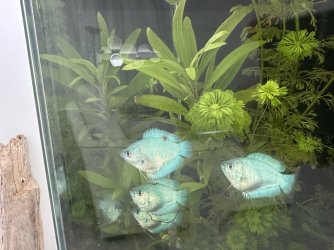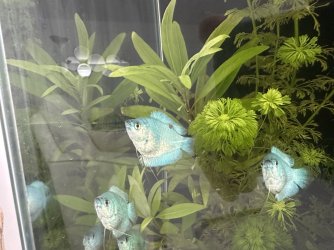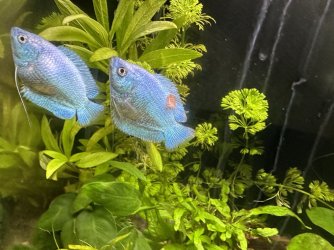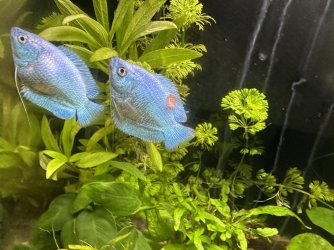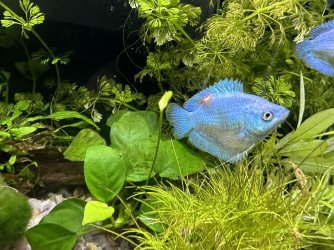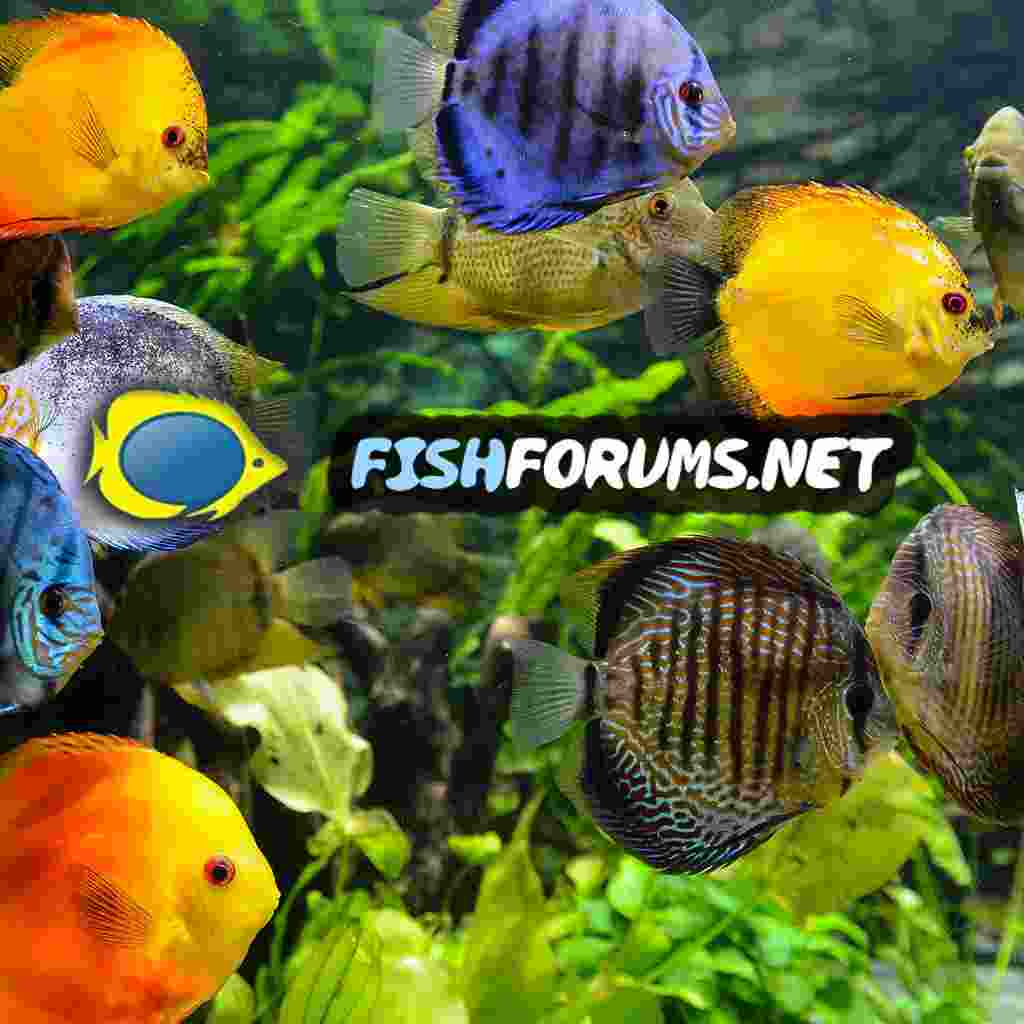Emma C
New Member
I have a little Female dwarf gourami which developed a dark brown spot on one side after I’d had her for a couple of months. The other 4 fish of same breed looked fine and all of them continued to eat and swim well.
The pet store thought it might be an age spot as the spot hadn’t changed size or colour in over a fortnight .. however, a month later, the spot grew in size, as if 2 additional spots of equal size had joined the existing one.. it went from looking flat to raised and then more like a deepening wound that has also appeared on its other side, albeit smaller .. it no longer looked like a brown spot but a wound with the scab removed and more of an orange colour ..
I’ve since done the first round of treatment with some anti bacterial stuff recommended by the pet store and I have to wait a week now till I can go for round 2. The spot is looking mostly brown again but not much smaller .. does this mean that the anti bacterial solution is working and how long before I can expect my little fish to have fully recovered ?
(Note, water tests proved water was clean / no issues .. though just before I added the anti bacterial solution, one of my other fish that had otherwise been well, appeared to have lost her appetite a couple of days before, and then struggled with breathing the night before she died though I don’t think this was related to my fish with the spot I’m asking about as the other 3 fish are fine and they are all eating / swimming happily )
The pet store thought it might be an age spot as the spot hadn’t changed size or colour in over a fortnight .. however, a month later, the spot grew in size, as if 2 additional spots of equal size had joined the existing one.. it went from looking flat to raised and then more like a deepening wound that has also appeared on its other side, albeit smaller .. it no longer looked like a brown spot but a wound with the scab removed and more of an orange colour ..
I’ve since done the first round of treatment with some anti bacterial stuff recommended by the pet store and I have to wait a week now till I can go for round 2. The spot is looking mostly brown again but not much smaller .. does this mean that the anti bacterial solution is working and how long before I can expect my little fish to have fully recovered ?
(Note, water tests proved water was clean / no issues .. though just before I added the anti bacterial solution, one of my other fish that had otherwise been well, appeared to have lost her appetite a couple of days before, and then struggled with breathing the night before she died though I don’t think this was related to my fish with the spot I’m asking about as the other 3 fish are fine and they are all eating / swimming happily )

